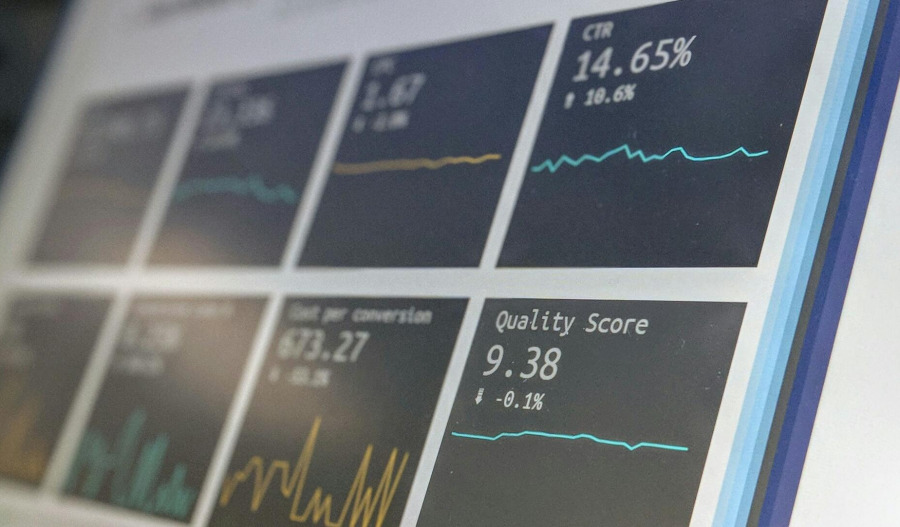While the United States economy rebounded significantly from the previous quarter's contraction, defying some predictions of an imminent slowdown, a mixed bag of numbers, which underpinned strong gross domestic product (GDP) growth, masked underlying labour market weakness.
The decoupling between GDP growth and a weakening labour market suggests that while the economy might be avoiding a technical recession for now, underlying weaknesses, especially in labour markets, could pose significant challenges ahead.
Due to a substantial decrease in imports, which mechanically boosted the GDP calculation, and a modest increase in consumer spending, the second quarter of 2025 saw the U.S. economy expand at an impressive 3.0% annual rate.
Supported by strong demand for motor vehicles, promotions by Amazon.com and Walmart U.S., retail sales increased solidly in July.
According to Commerce Department data, retail sales rose 0.5% last month after an upwardly revised 0.9% gain in June.
But while motor vehicles led the broad rise in sales, up 3.9% on a year-on-year basis, the latest July jobs report reveals a notable cooling in the labour market.
The total nonfarm payroll employment delivered gains of just 73,000 jobs, significantly short of economists' expectations.
Adding to labour market concerns, the Bureau of Labor Statistics (BLS) made major downward revisions for May and June, indicating 258,000 fewer positions were added in those months than previously reported.
The national unemployment rate rose to 4.2% in July from 4.1% in June, and the number of long-term unemployed (jobless for 27 weeks or more) increased by 179,000 to 1.8 million.
Job gains were largely confined to specific sectors, with healthcare and social assistance sectors among the biggest winners.
Given that they’re relatively insulated from broader economic fluctuations, large healthcare providers like UnitedHealth Group (NYSE: UNH) and pharmaceutical giants such as Johnson & Johnson (NYSE: JNJ) are expected to see continued stable demand for their services and products.
Meanwhile, more than half of major industries are experiencing job cuts, with manufacturing shedding 11,000 jobs, retail experiencing soaring layoffs, and construction slowing.
If the labour market continues to cool and consumer confidence wanes, major retailers like Walmart (NYSE: WMT) and Target (NYSE: TGT) could witness reduced discretionary spending.
Federal government employment also continued its decline, shedding a further 12,000 jobs.
Here’s a breakdown of how other sectors fared:
- Online sales rose 0.8% after increasing 0.9% in June.
- Clothing store sales rose 0.7%.
- Receipts at furniture outlets jumped 1.4%.
- Sales at sporting goods, hobby, musical instrument and book store sales rebounded 0.8%.
- Sales at building material and garden equipment retailers fell 1.0%.
- Receipts at electronics and appliance stores dropped 0.6%.
- Sales at food services and drinking places, fell 0.4% after rising 0.6% in June.
Meanwhile, the University of Michigan's Surveys of Consumers showed consumer sentiment weakened in August on the back of mounting purchasing power concerns.
"Underlying fundamentals are clearly softening," said Lydia Boussour, senior economist at EY-Parthenon.
"In the months ahead, the drag on consumer demand is expected to intensify, with demand destruction from higher tariffs likely to become more pronounced as consumers increasingly scale back discretionary purchases to cope with rising costs."
Consumers' 12-month inflation expectations increased to 4.9% this month from 4.5% in July.
Expectations that inflation would pick up were reinforced by a separate report from the Labor Department's Bureau of Labor Statistics that showed import prices increased 0.4% in July, boosted by a strong rise in the cost of consumer goods.
"Tariff evangelists in the Trump administration predict that import prices would fall after tariffs because exporters would cut their prices to defend export sales and market shares," said Carl Weinberg, chief economist at High Frequency Economics.
"We are not seeing what they are saying."



